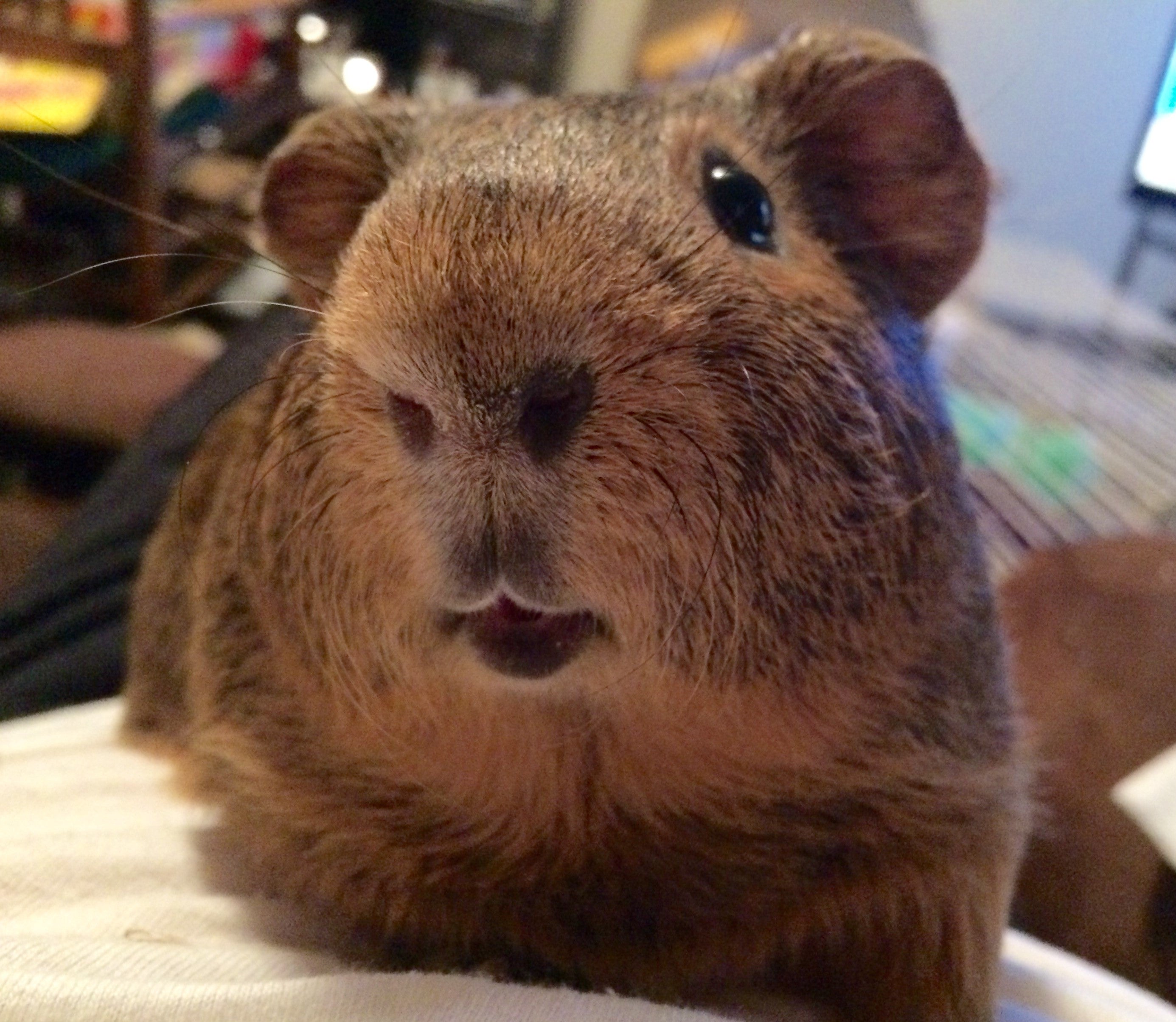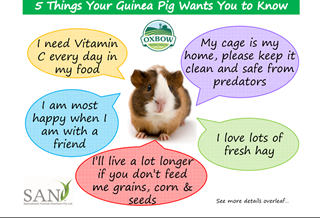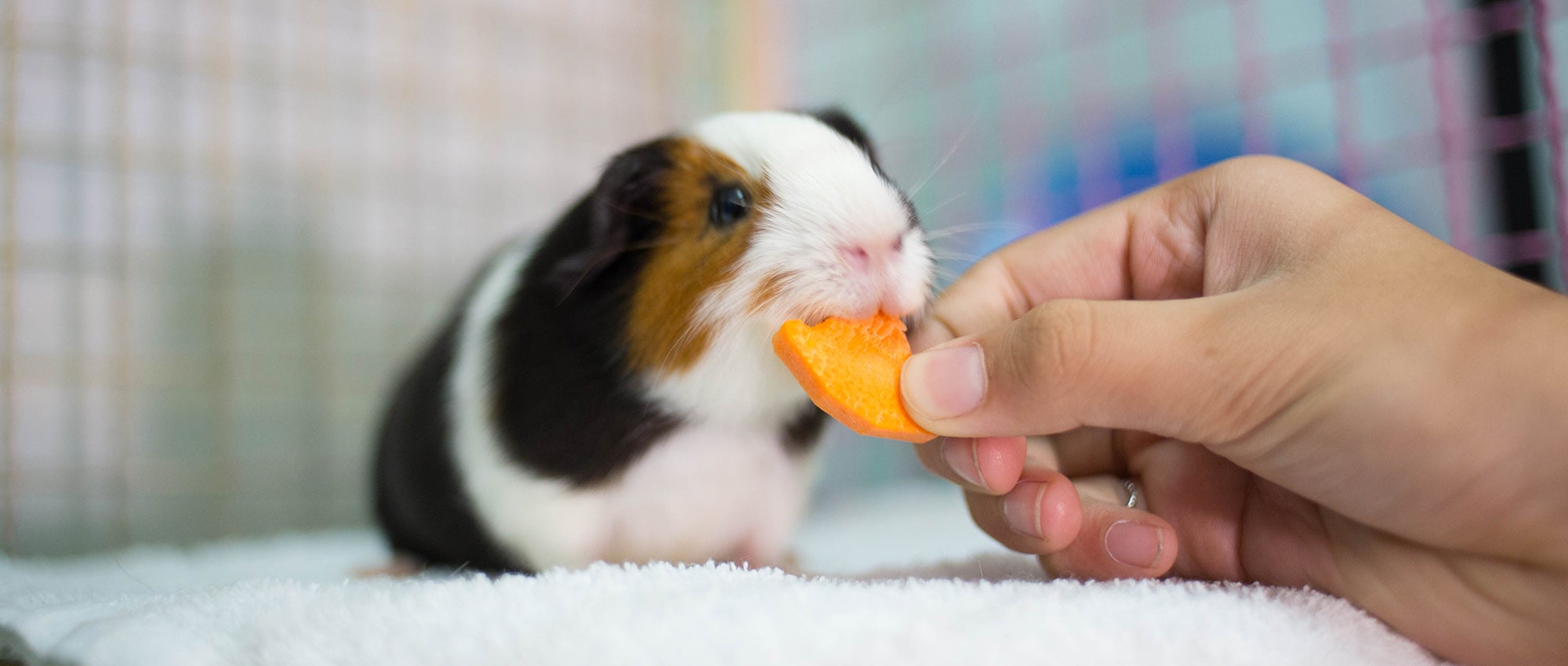Guinea pigs make great pets due to their friendly nature and low maintenance. However, they require proper care and attention for their well-being.
These adorable creatures are social and enjoy interacting with their human companions. One of the best things about guinea pigs is their gentle temperament, making them ideal for families with children. On the downside, they have specific dietary needs and require a spacious living environment.
Understanding both the positive and negative aspects of owning guinea pigs is essential for providing them with a happy and healthy life. Let’s delve deeper into the good and bad things about these lovable pets.

Credit: www.healthy-pet.com
Contents
Introduction To Guinea Pigs
Guinea pigs, also known as cavies, are popular small pets known for their gentle nature and low maintenance. In this section, we will discuss the good and bad things about guinea pigs, focusing on their origin and characteristics.
Their Origin And Popularity
Guinea pigs are native to the Andes mountains in South America, where they were domesticated by the Inca people for food and religious ceremonies. They gained popularity in Europe during the 16th century and have since become beloved pets worldwide.
Brief Overview Of Their Characteristics
Guinea pigs are social animals that enjoy companionship and thrive in pairs or small groups. They are known for their docile nature and make great pets for children and adults alike. With a lifespan of 5-7 years, these herbivorous creatures require a diet rich in hay, vegetables, and vitamin C to stay healthy.
The Joy Of Guinea Pig Companionship
Social And Loving Nature
Guinea pigs are social animals that thrive on companionship. They form deep bonds with their owners and enjoy spending time interacting with them. Their loving nature is evident in their gentle behavior and the way they respond to human interaction. Additionally, guinea pigs are known to show affection by making soft, purring sounds when they are content.
Ease Of Care And Handling
Guinea pigs are easy to care for and handle, making them ideal pets for families and individuals. Their small size and gentle temperament make them easy to handle, especially for children. Additionally, their low maintenance requirements and the ability to thrive in a variety of living environments make them a convenient choice for pet owners.
Health Benefits Of Having A Guinea Pig
Guinea pigs are not only adorable pets but also bring numerous health benefits to their owners. These cuddly creatures can have a positive impact on your physical and mental well-being, making them wonderful companions for people of all ages.
Stress Reduction
Owning a guinea pig can help reduce stress and anxiety. The gentle nature of these small animals and their soothing presence can have a calming effect on their owners. Spending time with a guinea pig can lower cortisol levels, promoting a sense of relaxation and overall well-being.
Encouragement Of Responsibility In Children
Guinea pigs can be excellent pets for teaching children about responsibility. By caring for these small animals, children can learn the importance of daily tasks such as feeding, cleaning, and providing companionship. This hands-on experience fosters a sense of accountability and empathy in children, helping them develop essential life skills.
Challenges In Guinea Pig Care
Dietary Requirements
Guinea pigs need a diet rich in hay, fresh vegetables, and pellets.
Need For Spacious Living Conditions
Guinea pigs require a large cage to have ample space for exercise and exploration.
Common Health Issues In Guinea Pigs
Discover the common health issues in guinea pigs, from dental problems to respiratory infections. Understanding the good and bad aspects of caring for guinea pigs can help you provide the best possible care for these adorable pets.
Common Health Issues in Guinea PigsGuinea pigs are cute and cuddly pets that make great companions. However, they are prone to certain health issues that pet owners should be aware of. In this section, we will discuss some of the most common health problems that guinea pigs experience, along with their causes and treatments.Scurvy from Vitamin C DeficiencyOne of the most common health issues in guinea pigs is scurvy, which is caused by a deficiency in vitamin C. Guinea pigs are unable to produce vitamin C on their own, so they need to get it from their diet. A lack of vitamin C can cause a range of symptoms, including lethargy, joint pain, and bleeding gums.To prevent scurvy, it is essential to provide your guinea pig with a diet that is rich in vitamin C. This can be achieved by feeding them fresh fruits and vegetables such as bell peppers, kale, and strawberries. In severe cases, your vet may recommend vitamin C supplements to ensure your guinea pig gets enough of this essential nutrient.Respiratory InfectionsAnother common health issue in guinea pigs is respiratory infections. These infections can be caused by a range of bacteria and viruses and can lead to symptoms such as sneezing, coughing, and difficulty breathing.To prevent respiratory infections, it is essential to keep your guinea pig’s living environment clean and hygienic. This includes regular cleaning of their cage, providing fresh bedding, and ensuring good ventilation. If your guinea pig does develop a respiratory infection, your vet may prescribe antibiotics or other medications to help them recover.In conclusion, while guinea pigs make great pets, they are prone to certain health issues. By being aware of these common health problems and taking steps to prevent and treat them, you can help ensure your guinea pig lives a happy and healthy life.The Financial Aspect
When considering guinea pigs as pets, it’s essential to weigh the financial aspect. Understanding the costs involved can help you make an informed decision.
Cost Of Initial Setup
- Cage: $50-$100
- Bedding: $10-$20 monthly
- Food bowls, water bottles: $20
- Toys and accessories: $20-$50
Ongoing Expenses
- Food: $20-$30 monthly
- Hay and fresh vegetables: $10-$20 monthly
- Veterinary care: $20-$50 per visit
- Bedding and cleaning supplies: $10-$20 monthly
Guinea Pigs And Allergies
Guinea pigs are popular pets, but they can cause allergies in some people. Their fur and dander can trigger allergic reactions, but they also have a calming effect on humans. It’s important to weigh the pros and cons before bringing a guinea pig into your home.
Guinea pigs can make great pets, but they can also cause allergic reactions in some people. Potential for allergic reactions is a significant concern for those who are considering getting a guinea pig. While it is rare, it is still important to understand the precautions and solutions that can help mitigate the risk of allergic reactions. In this article, we will explore the good and bad things about guinea pigs, with a specific focus on guinea pigs and allergies.Potential For Allergic Reactions
Guinea pigs, like other pets, can cause allergic reactions in some people. The most common allergen is the protein found in their urine, saliva, and dander. When these allergens come into contact with human skin, eyes, or lungs, they can cause a range of symptoms, from mild to severe. Some of the most common symptoms of guinea pig allergies include:- Itching and redness of the skin
- Sneezing and a runny nose
- Wheezing and difficulty breathing
- Watery and itchy eyes
Precautions And Solutions
If you or someone in your family is prone to allergies, it is essential to take precautions before getting a guinea pig. Here are a few tips to help you reduce the risk of allergic reactions:- Visit a friend or family member who owns a guinea pig to see if you have an allergic reaction before getting one for yourself.
- Keep the guinea pig’s cage in a well-ventilated area to reduce the concentration of allergens in the air.
- Wash your hands thoroughly after handling the guinea pig, its food, or its bedding.
- Consider using an air purifier or HEPA filter to reduce allergens in the air.
- Take an antihistamine or use nasal spray to alleviate symptoms if you do have an allergic reaction.

Credit: www.pacisinsurance.com
Making The Right Decision
When deciding whether to have guinea pigs as pets, weigh the pros and cons carefully. While they are cute and sociable, they require attention and specialized care to thrive. Making the right decision involves considering the commitment and responsibilities associated with owning these adorable animals.
Making the Right Decision:Guinea pigs make great pets, but owning one comes with a lot of responsibility. Before getting a guinea pig, it’s important to make sure that it’s the right pet for you. In this section, we’ll discuss the good and bad things about guinea pigs to help you make an informed decision.Assessing Lifestyle Compatibility:Before getting a guinea pig, it’s important to assess whether your lifestyle is compatible with the needs of these adorable pets. Guinea pigs require daily attention and care. They need a spacious cage with plenty of room to move around, fresh water and food, and regular exercise. If you’re someone who travels frequently or has a busy schedule, it may be difficult to provide the necessary care for your guinea pig.Long-term Commitment Considerations:Guinea pigs have a lifespan of 5 to 7 years, and they require long-term commitment. It’s important to consider whether you’re ready for this long-term commitment before getting a guinea pig. If you’re someone who moves frequently or isn’t ready for a long-term commitment, it may be best to consider a different pet.In conclusion, before getting a guinea pig, it’s important to assess whether your lifestyle is compatible with the needs of these pets, and whether you’re ready for the long-term commitment required to care for them. By making an informed decision, you’ll be able to provide the best possible care for your furry friend.
Credit: www.humanesociety.org
Frequently Asked Questions
Can Guinea Pigs Be Kept As Pets?
Yes, guinea pigs can make wonderful pets. They are sociable, gentle, and relatively easy to care for. With proper attention and care, they can provide companionship and joy to their owners.
What Are The Benefits Of Owning A Guinea Pig?
Owning a guinea pig has numerous benefits. They can help reduce stress, provide companionship, and teach responsibility to children. Additionally, their playful nature and adorable appearance make them a great source of entertainment and happiness.
Are Guinea Pigs Suitable For Small Living Spaces?
Yes, guinea pigs are well-suited for small living spaces. They can thrive in apartments or houses with limited space, as long as they have access to a suitable cage or enclosure. However, it’s important to provide them with enough exercise and mental stimulation to ensure their well-being.
Do Guinea Pigs Require Any Special Diet?
Guinea pigs have specific dietary requirements. They need a balanced diet consisting of fresh hay, vegetables, fruits, and pellets formulated specifically for their nutritional needs. It’s crucial to avoid feeding them foods that are toxic to their digestive system, such as chocolate or onions.
Conclusion
To sum up, owning a guinea pig can be a rewarding experience. They are adorable, social creatures that make great companions. However, it’s important to consider the responsibilities that come with caring for them. From providing proper nutrition and a comfortable living environment to dedicating time for interaction and play, guinea pigs require commitment.
By understanding both the good and bad aspects of owning a guinea pig, you can make an informed decision about whether they are the right pet for you. Remember, their well-being should always be the top priority.



